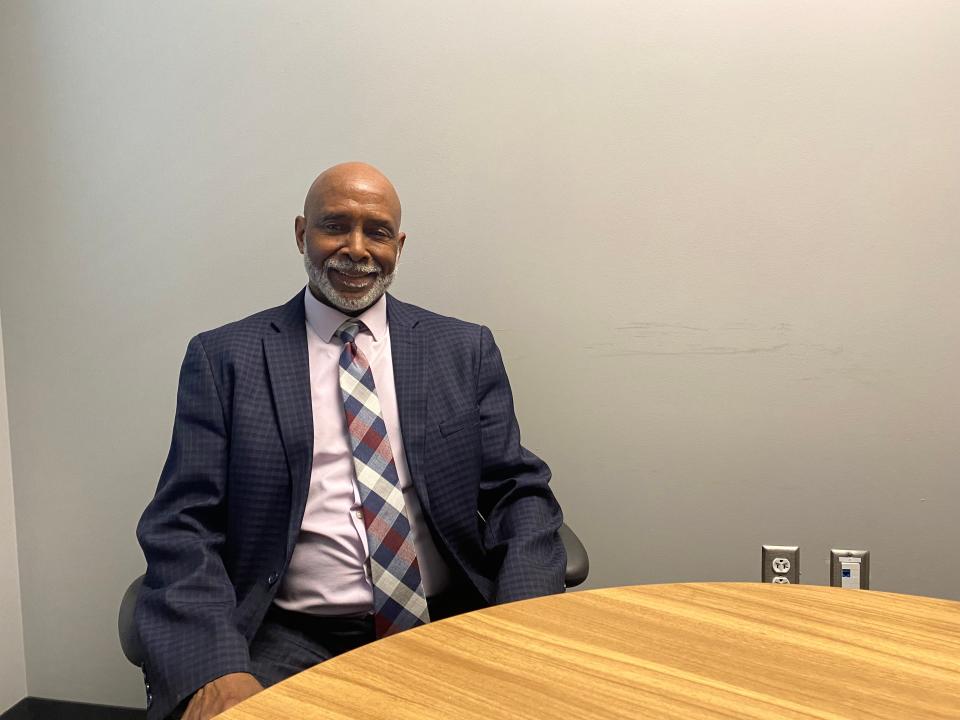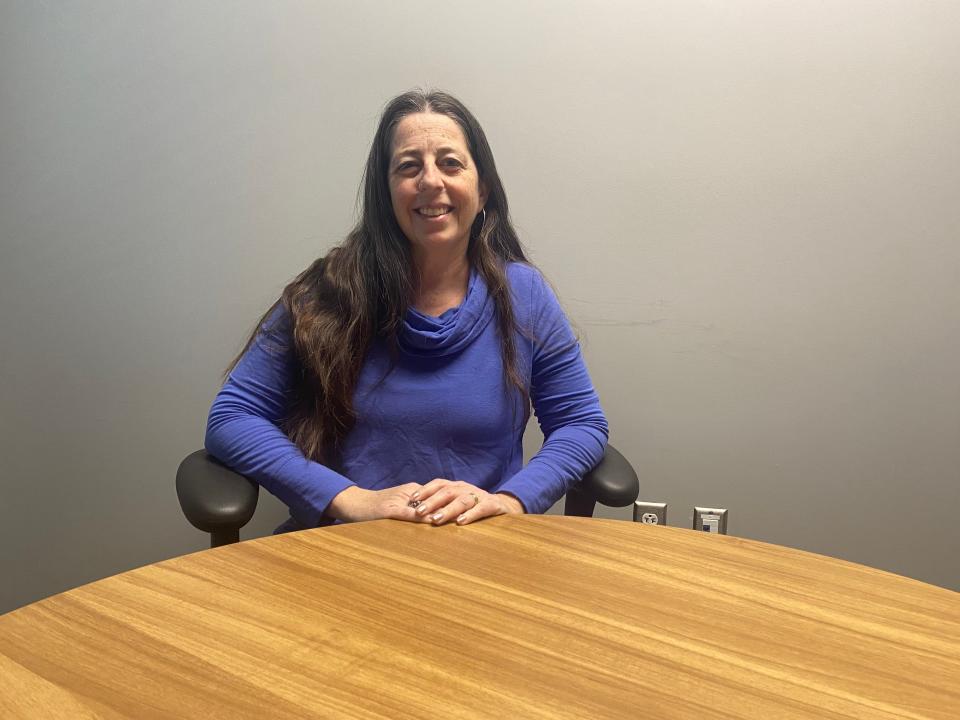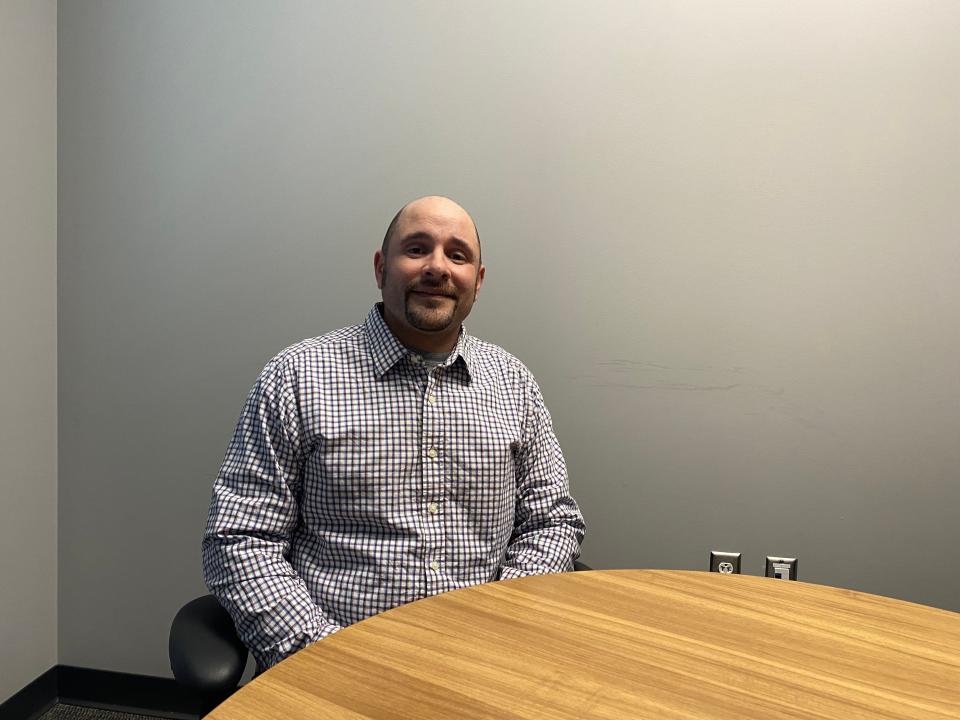Columbia school board candidates talk student attendance, AI and priorities
Columbia Board of Education candidates in separate interviews at the Tribune addressed a question about an issue Columbia Public Schools is working on, an issue that hasn't been mentioned in the campaigns and one they each have focused on in their campaigns.
The candidates are Alvin Cobbins, John Potter and Jeanne Snodgrass. The top two vote-getters on April 2 will be elected to three-year terms on the school board.
Snodgrass is the incumbent and the board's vice president.
Potter also is running for the Missouri House of Representatives in the 47th District. In his interview, he said he's not looking past the school board election. He clarified when he said at a forum it would be "no problem" to do both, he meant that he has previously held more than job at the same time.
Student attendance an ongoing problem for CPS
Student attendance is an ongoing problem in CPS and schools around the state. District data shows that schools with the highest attendance have the highest achievement scores. The state standard is 90% of students in school 90% of the time, but the district isn't meeting it.

Literacy in the early grades will lead to improved attendance, Cobbins said.
"The first thing that comes to mind when we talk about school attendance, I think about early grade literacy," Cobbins said. "If a child knows how to read and comprehend at the end of third grade, chances of them succeeding is far greater for the next nine years."
If they're not reading and comprehending by third grade, the student will struggle.
Students succeeding in school want to attend but if they're not, they will find ways to avoid school and fall further behind, he said.
Student attendance should be part of their grades, Potter said.
"The more students attend school, the better their grades are going to be in general," Potter said. "But I think if there's something tied to their grade, then it gives them an incentive to show up."
If a student is bullied or picked on at school, that also causes absences, he said.

Student attendance is a combination of things and with several pieces, Snodgrass said.
"We want our students to want to be in school," Snodgrass said. "I think it's a combination of things. It's continuing the efforts that the school district already has begun in terms of outreach to families, making sure we're checking in, making sure our students and their families have the supports they need to get students to school. And really, it also needs the community's help and the community's support."
Margie Vandeven, outgoing Missouri education commissioner, also said a community effort is needed to combat student absenteeism.
Getting the community involved isn't easy, Snodgrass said.
An elementary student may have missed their bus after their parent has left for work, with no other option to get to school, she said.
Another situation is a high school student who drives and chooses not to go to school.
"So I don't know that there's a one-size-fits-all community solution either," Snodgrass said. "Like I said before, we need to be really aware and really looking into why aren't our students showing up?"
Artificial intelligence and cheating
Artificial intelligence hasn't been mentioned in the school board campaigns and the topic hasn't come up at school board meetings.
The candidates were asked what students should be learning about AI and what teachers should do to protect from students using AI to cheat.
"I don't know how myself, but I do think there needs to be some guardrails put in place," Cobbins said. "And from what I know about AI, there are a lot of big, major companies and the federal government and their systems. They're all working to grab ahold and contain AI."
Technology is growing fast, he said.
"I think our curriculum should be leaning towards technology," Cobbins said.

Artificial intelligence can be used to catch people using artificial intelligence to cheat, Potter said.
"There needs to be an education process, and I don't necessarily know what grades that should start in, but maybe middle school or high school, where you're educated with the pros and cons of it. You know, I think there's going to be a point in the future where we're not going to be able to believe our own eyes."
AI also is going to make scientific discoveries, he said.
"It's going to have a big impact on the medical industry, you know, cancer research and medical advances," Potter said.
Schools need to use technology in a safe way, Snodgrass said.
"We live in a really technological world," Snodgrass said. "AI is out there now and we need to make sure our students understand within and academic setting what's appropriate and what's not, but also, more generally, where that line is, right? How to be critical about the messages you're receiving and the news that you're seeing and all the pieces that come with technology."
It's teaching students about critical thinking, she said.
Candidate issues
Each candidate was asked about an issue they have talked a lot about during the campaign.
For Cobbins, he has repeatedly talked about a desire to bridge gaps.
He was asked what gaps need bridging.
There is sometimes a lack of trust between parents and school officials, Cobbins said.
He has accompanied parents in meetings with teachers and administrators.
"I go in with a question mark," Cobbins said. "There is an incident. What happened?"
A teacher called him last week when one of his grandchildren wasn't at school, he said.
The teacher had called the child's parent, with no answer, Cobbins said. He got in touch with the parent to find out the cause.
"The teacher took the time to check in on that child," Cobbins said. "You cannot beat that."
Potter said at the first candidate's forum that the district's diversity, equity and inclusion efforts were devastating the schools.
He doesn't have an issue with the diversity and inclusion parts, Potter said. It's equity that irks him. The district should aim for equality instead.
Equity relates to fairness in the way people are treated, including freedom from bias or favoritism. Equality relates to people having the same rights and opportunities.
Ridgeway Elementary School, which his children attended, is very diverse, with students from around the district, he said.
More: Should Columbia teachers carry guns? School board candidates talk student safety
He said standards referenced grading is an attempt at equity, aiming for equal outcomes for all students.
District officials have said standards-referenced grading is a measure of how well individual students meet state standards.
"The school board promotes and has promoted a lot of things that I think are hurting the district," Potter said.
Teachers also object to DEI training the district provides, causing some to leave, he said.
Snodgrass has said she wants to continue the efforts the school district is focusing on.
"I think I just want to be part of the work of continuing the shift that I see happening in terms of a really high, hyper focus on student achievement and the corollaries to that pieces connected to that around teacher recruitment and retention," Snodgrass said.
Best practices includes equity and ensuring students have representation, she said.
Bringing in more student and community voices is another issue, she said. Student voices have become a regular part of each regular school board meeting.
"What are the things that we want to set up to make sure that we're really getting diverse voices from our community to inform decision making and its ongoing work?" Snodgrass said.
It's work that won't ever finish, she said.
"It's a shift that's happening and it's happening very intentionally and I want to be a part of continuing to see that happen," she said. "Because I think it's really important."
Roger McKinney is the Tribune's education reporter. You can reach him at rmckinney@columbiatribune.com or 573-815-1719. He's on X at @rmckinney9.
This article originally appeared on Columbia Daily Tribune: 3 Columbia school board candidates talk student attendance, AI

